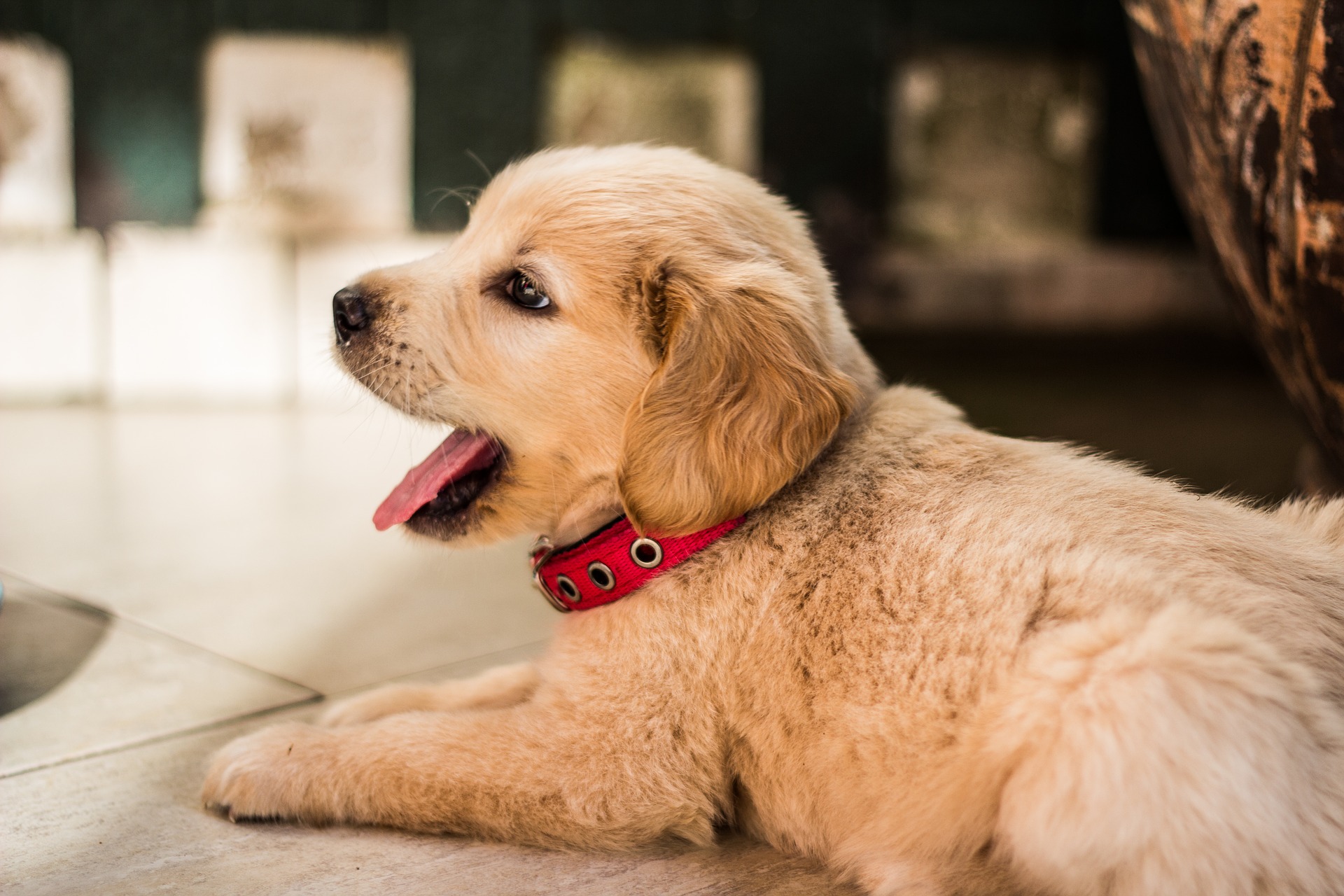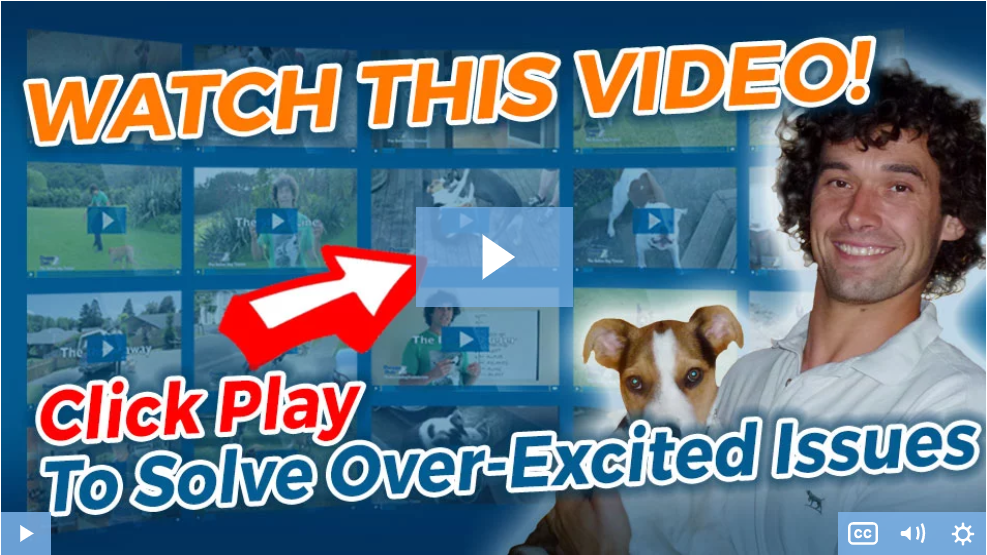Training your puppy involves a lot of trial and error, and puppy separation anxiety is (for most owners) one of the most stressful and frustrating.
I mean, leaving your new friend locked up at home knowing that they are going to feel hours of extreme stress is something no owner should have to deal with.
Worse still, there’s simply no telling whether they may or may not fall victim to this distressing condition.
Some puppies will be perfectly fine left alone from an early age, while others will feel an acute sense of abandonment by their pack.
So the key is knowing what to look out for and take action right away.
It’s hard, but puppies do not simply ‘grow out’ of separation anxiety, so instead, you need to find a way to make them understand that you’ll be coming home later on.
I remember years ago when my GS was still a pup. Out of the blue, he started to bark uncontrollably every time I left for work and became incredibly needy whenever I came back.
Luckily, it only lasted a few weeks and I owe most, if not all of it to the training I picked up from Dan Abdelnoor over at The Online Dog Trainer.
I’d recommend it to anyone struggling with this particular problem because it honestly saved me a lot of hassle and frustration.
WATCH VIDEO: Discover 5-Step-By-Step Calming Exercises You Can Use RIGHT NOW To Quickly & Permanently Eliminate Your Puppy’s Separation Anxiety…
(video will open in a new window)
How To Identify Separation Anxiety In Your Puppy
Separation anxiety can present itself in a number of different ways.
The only absolute truth is that your dog is going to be extremely scared.
Some will become uncontrollable and destructive, while others may be literally frozen stiff.
To add even further frustration, even the best owners who effectively socialize their puppy, teach them house rules, crate training, and so forth. Might still be unlucky enough for their pet to still exhibit such anxieties.
It is important at this stage to keep a close eye over their general behavior, as sometimes separation anxiety can be misinterpreted as general naughtiness or a more serious anti-social behavior.
Remember that your dog is still developing and that general accidents are inevitably going to occur now and again.
The key is to identify when this behavior is willful or caused instead by separation-related stress.
So what are the most common ways we can tell whether or not a puppy is struggling with being left alone?
In most cases, you will have the first inkling that something is not right when you return home and discover damage to property or defecation.
Should your dog be well behaved and used to their usual toilet routine (remember pups need to go every couple of hours at most), then something must have provoked this out of character behavior.
Look out also for the following…
Excessive barking for no reason
Generally speaking, separation based barking tends to be bark – then a couple of seconds pause before a bark again.
It will typically continue throughout the day until you come home (consider checking with neighbors – or expect them to complain eventually anyway!).
Physical stress
Some dogs will become hyperactive when stressed – and this is what tends to cause the most damage to your home.
But others will freeze up.
Look for sweating and excessive panting/drooling. Your pup’s body language will express a lot.
They will naturally be happy to see you arrive back, but look out for indications that it is a panicked relief instead of simple joy.
General destruction
When a good proportion of puppies are afflicted by separation anxiety, they will perform focussed destruction.
Most of the time this will be items that carry you and your family’s scent.
There is a clear reason why stressed-out dogs tend to destroy shoes, furniture, and bed linen ahead of most other potential targets.
So when you discover that your favorite shoes have been torn to shreds, the first thought ought to be regarding their anxiety instead of your own anger.
Fear when leaving the house
Dogs are creatures who thrive on routine, and they’ll know fine and well when you are about to leave them locked alone for hours on end.
Classics indications will be preparing your outdoor clothes, grabbing the car keys, and simply just patting them goodbye.
Often they will exhibit distressed whining or barking and may insist on remaining by your side.
Escape attempts are also sadly all too common.
As mentioned above, dogs simply do not just ‘get used’ to being isolated and after time they may become devoted to trying to leave.
Look out for claw marks and damage to doors/windows, and whether they are waiting by the window when you get back home.
In extreme cases, they may decide to flee should an opportunity arise when on walks or in the yard.
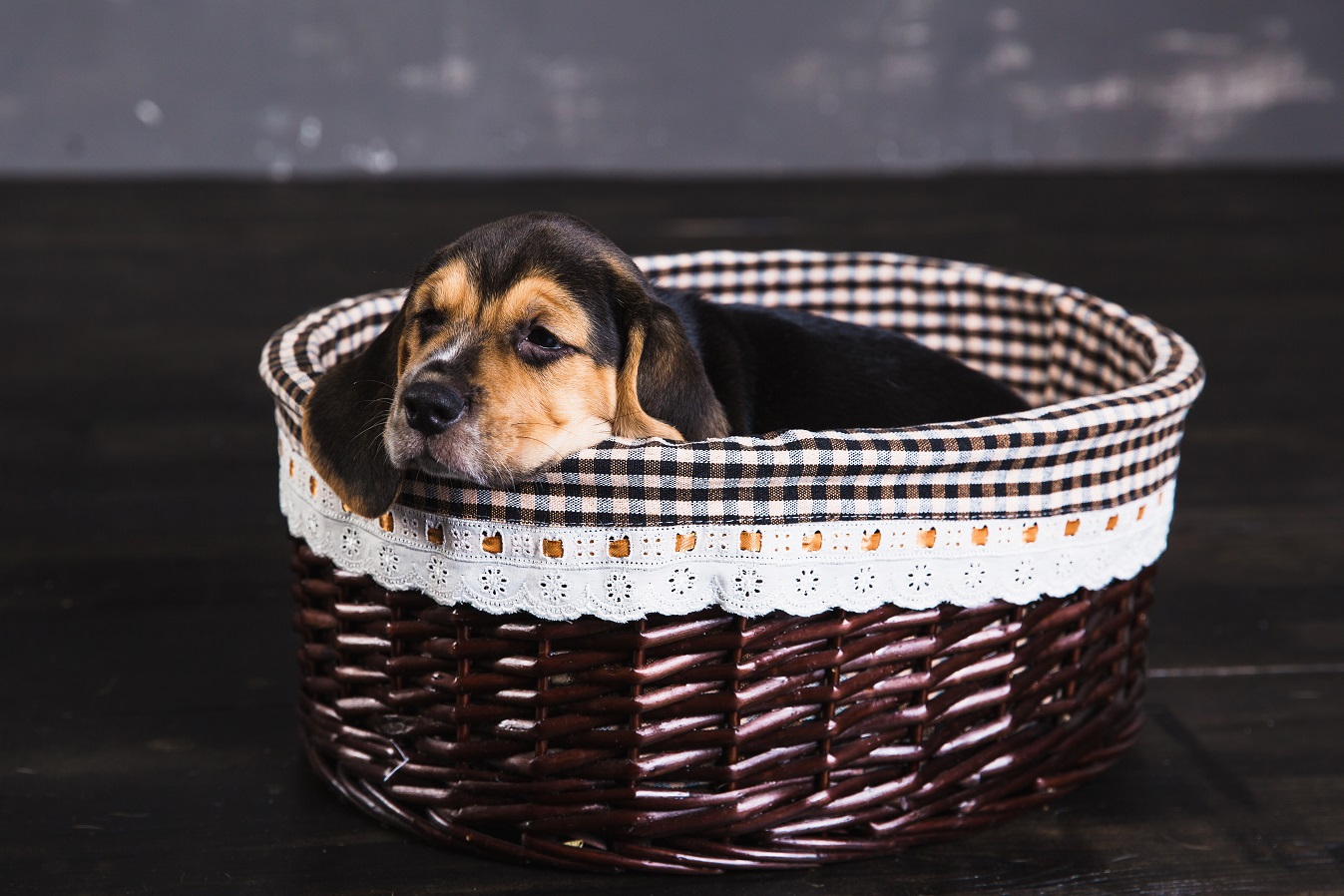

Potential Causes Of Separation Anxiety
As we’ve already touched upon, separation-related stress can simply occur in dogs with confidence issues or already holding a nervous disposition.
That being said, there are mitigating factors that can seriously enhance the likelihood that problems will arise.
A frequent cause of these issues is when they have experienced stress or trauma while being locked up alone at home.
This could be anything from a car backfiring to you just being delayed from returning at your usual time.
In absolute truth, there are dozens of potential scenarios that may cause this style of onset.
Difficult and confusing as it can be, good owners will always look out for anything which may be contributing to separation difficulties.
Unexpected changes can also play a significant factor in causing the problem to develop and intensify.
For example, moving to a new property or facing a sudden change in routine (no more lunchtime walkies, etc) are going to throw your dog’s confidence levels in what they may expect over the coming day.
A general lack of exercise or playtime
Two things that all puppies need a lot of is likely to also exacerbate the issue.
Even not allowing your dog to roam around the house may stress them out.
Owners who crate their pup during their daytime will know that dogs who are not trained yet will likely become highly freaked out.
And in serious cases, this can be dangerous for your pooch.
In a nutshell, separation anxiety can be a very complicated problem that originates from a broad variety of potential causes.
This is why many owners require professional consulting to identify what could be causing the stress to develop. And in extreme circumstances, it may be necessary to look into walking or dog sitting services.
Which, needless to say, can become expensive very quickly.
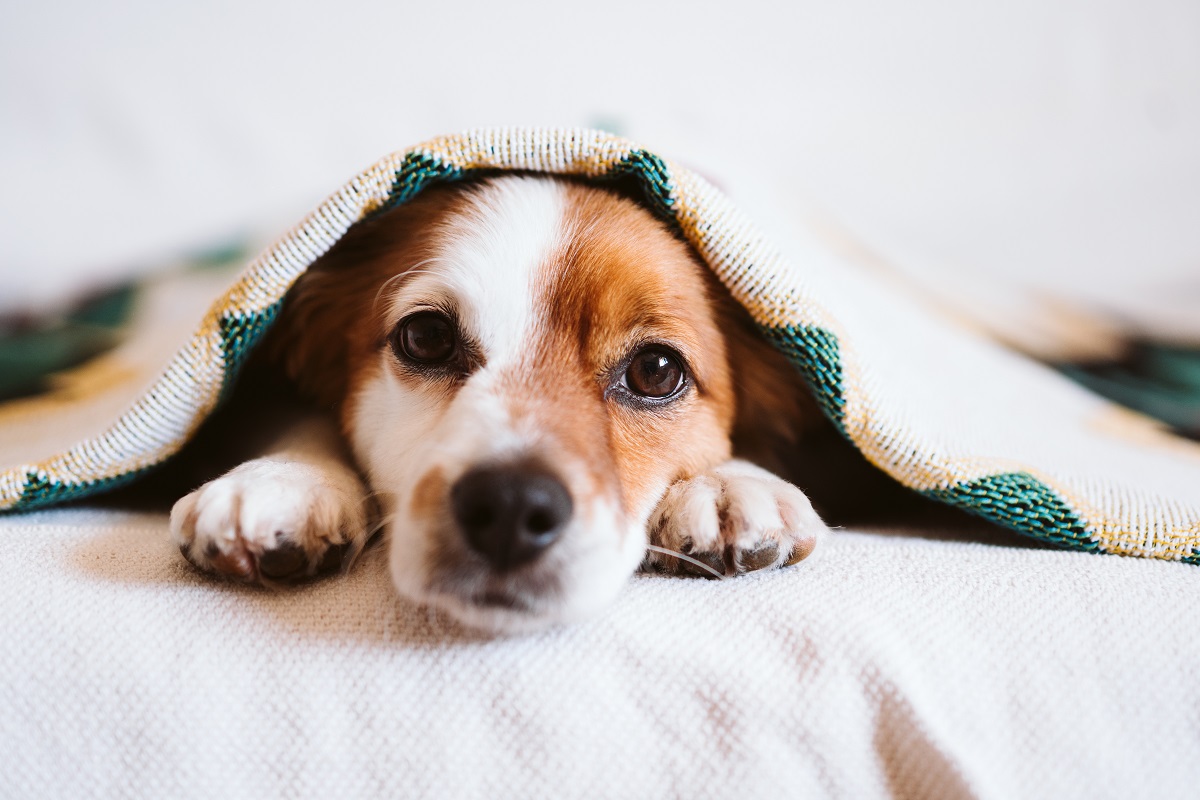

How To Cure Puppy Separation Anxiety
Horrible as separation anxiety is, on the bright side there is an enormous selection of resources, training, and advice that may be able to help cure the issue.
Never forget that many thousands of households overcome this problem every year and that at least puppies are generally more malleable and adaptable than older dogs (who can also cause much more damage!).
Resolving separation-related issue comes largely down to following through the essentials for caring for your dog.
Take a look at the following common factors and honestly assess how well your household is providing adequate care.
1) Desensitization
Being able to communicate with your puppy that there is nothing to worry about is the ‘Holy Grail’ of effectively addressing separation anxiety.
Your dog needs to learn how to associate being alone for a while as a positive experience, and an opportunity for them to rest and enjoy a little peace and quiet.
How far this can be effective depends on individual circumstances and how long they are being left.
The best place to start performing this is when they are very young.
Identify their absolute favorite special treat – which ought not to be something they routinely enjoy. And reserve this exclusively for when you are due to leave the house.
Hopefully, they will not just be distracted by the tasty morsel but come to understand that as being a cue for the next stage of their day, and time to settle down peacefully until you return.
It is good practice to implement this method slowly and gradually lengthening the duration.
While it can take time, and there are always going to be occasional accidents and mistakes (never scold your pup for these). Desensitization to being left alone is something all owners ought to perform.
2) Healthy Dog = Happy Dog
Keeping your dog enjoying a suitable amount of regular daily exercise can help address separation anxiety.
While it is never a bad thing to tire them down before heading out, consider also that outdoors exercise and socialization will help to develop a greater sense of confidence.
Sure, some dogs may be naturally nervy, but we have yet to find a healthy pup who didn’t love walks and playtime.
A common question asked by owners trying to help a puppy suffering from separation anxiety is what they can do to help keep them stimulated when away from the home.
It is essential, of course, to provide adequate food and plenty of water (stressed dogs can drink uncontrollably) but do not scrimp when it comes to toys and stimulating mental puzzles.
Your dog still may miss you and long for your return, but at least it has things to occupy itself.
3) Addressing Attention Seeking Behaviors
Something you’ll notice the moment that you bring your puppy home is that they will rarely leave your side.
After they have scoped through their new home, they will understand that you are the source of their foods and pleasure!
Cute as this can be, it will become a little oppressive and can play a very large role in fostering separation anxiety.
You need your puppy to understand that it cannot always be with you.
The way to do this is basically by acting entirely neutral when your dog attempts to gain your attention.
This can be in many ways, but you’ll know neediness when you see it.
So instead of communicating with them, do not even make eye contact and just continue whatever you are doing.
Should their behavior worsen, try turning away from them. The same applies for when you get home to an excited pooch. Just adopt a casual nature and offer a quick pat hello. Anything more can worsen the problem.
4) Effective Crate Training
Crates are an invaluable tool for many aspects of puppy training.
They ought to be used to isolate them for specific periods as required – but never for too long.
Now, depending on which source/expert you believe, the general rule of thumb is to not hold them in cages for more than a couple of hours when very young.
This can be stretched to four or even six as they approach adolescence.
Remember, the crate ought to be comfortable and a place they can feel secure (placing an old towel over the top can work absolute wonders).
It is poor ownership to crate your dog all day. Should you need to leave them unattended for several hours, you’ll need to create a ‘puppy proof’ room – ideally one which has easy to clean surfaces.
5) Medication
Most people will see at least some improvement by patiently following the above steps.
Yet in rare cases, your dog may be so naturally nervous that they simply need some additional help to cope.
Vets will usually be accommodating in providing mild sedatives in these circumstances, and there are also a number of natural options that may or may not be effective.
Ideally, it is always best not to resort to medication, especially during this crucial stage of your pup’s development.
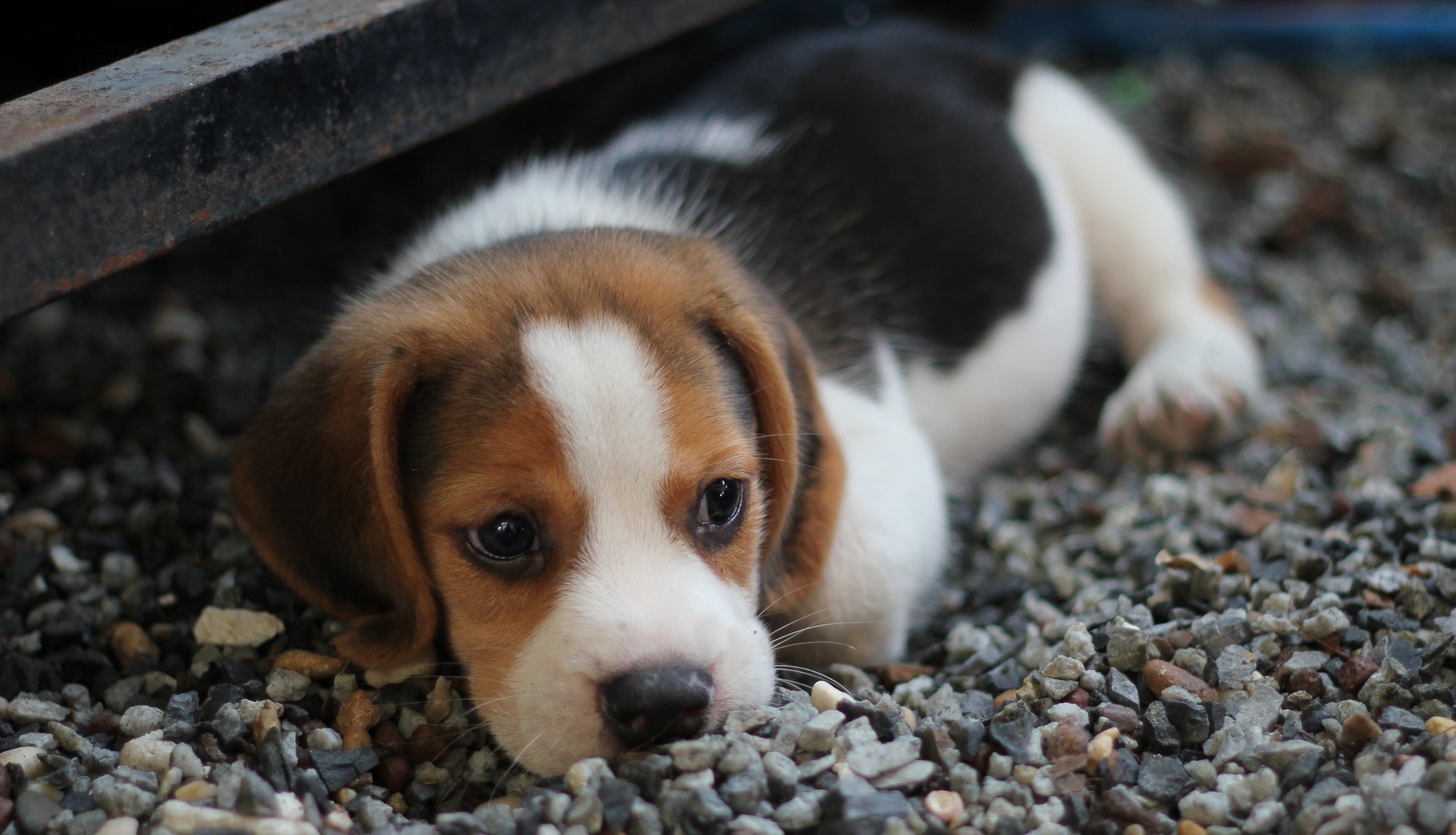

Final Thoughts
So, we’ve explored how separation anxiety can be stressful for both owners and pups, but it can be a dispiriting issue to address.
Consistency is the key to helping your dog be relaxed in their own company, and a sensible schedule that covers their essential needs can alone make a world of difference.
Separation anxiety is a common problem that is (odd as it may sound for anyone coping with it) best handled and addressed during puppyhood.
Older dogs can be nearly impossible to appropriately retrain, so take advantage of implementing this form of training as soon as possible.
When performed alongside other routines, it will always deliver a happier and more confident pet.
Have you any experiences or advice you’d like to share with the community? Most owners will have experienced separation anxiety at some stage, so feel free to post away in the comments section below.
WATCH VIDEO: Discover 5-Step-By-Step Calming Exercises You Can Use RIGHT NOW To Quickly & Permanently Eliminate Your Puppy’s Separation Anxiety…
(video will open in a new window)
